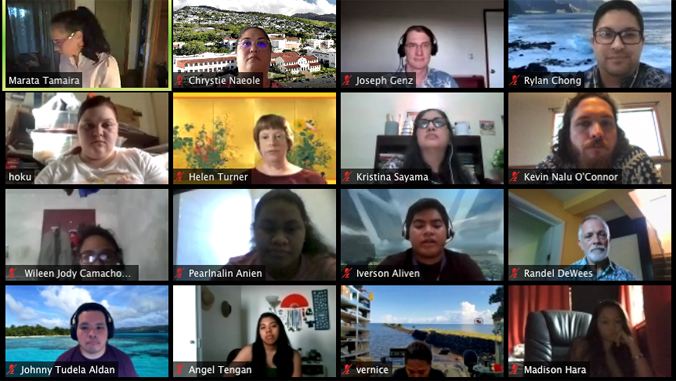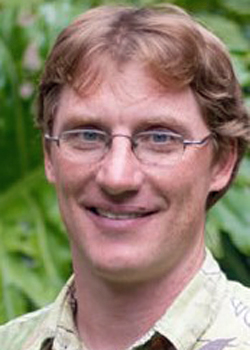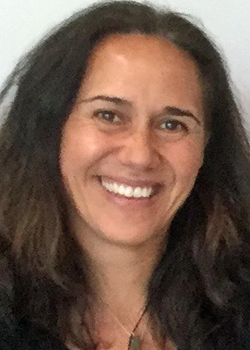
At the inaugural DataCamp in fall 2020, students from Hawaiʻi and the Pacific region worked together on projects in real-time, launching a network of future indigenous data scientists. The camp was supported through the Islands of Opportunity Alliance (IOA), a network of higher education institutions from Hawaiʻi and 10 other partners located throughout the U.S.-affiliated Pacific.
The University of Hawaiʻi at Hilo serves as the administrative hub of the group, which includes partner campuses in American Samoa, Guam, Hawaiʻi, Palau, the Federated States of Micronesia, the Marshall Islands and the Northern Marianas Islands. The Pacific-based program is geared toward minority students, specifically Native Hawaiians and Pacific Islanders, and is aimed at encouraging students from two-year programs to continue their education at four-year institutions.
“Upskilling” data analysis
The online DataCamp was run by faculty and staff from alliance member Chaminade University and focused on data analytics proficiency. The course introduced the field of data analytics and started the process of “upskilling or reskilling” through a set of curated hands-on learning modules.
Students did not need any prior skills or knowledge in programming, statistics or visualization. However, at the end of the course, each participant emerged with the confidence and empowerment to continue to the next phase of the program, which is to apply the learned competencies to a real, current and relevant project in the student’s own community.
“I developed a respect for those who are interested in coding and data science,” said Pearlnalin Anien, a biology major at UH Hilo who attended the DataCamp. “There was a lot to learn, and it is not an easy thing to spend four to six hours per day doing data analysis. The knowledge I acquired will go a long way in my research career.”
See also Biology major receives scholarship from non-profit supporting Micronesians in Hawaiʻi
- Related UH Hilo Stories article: Biology major receives scholarship from non-profit supporting Micronesians in Hawaiʻi
Regional STEM community


Joe Genz, an associate professor of anthropology at UH Hilo who serves as the director of the IOA, said that the most exciting thing was seeing how students from across the Pacific region felt connected to each other.
“Students worked through the same data analytics modules and connected in real-time, establishing our first alliance-wide STEM learning community,” Genz said.
Andrea “Mārata” Tamaira, a lecturer of Pacific studies at UH Hilo who serves as project manager for the group, said she is extremely proud of what the students achieved.
“The fact is, Native Hawaiians and Pacific Islanders, such as the students who participated in the DataCamp, account for some of the most underrepresented groups when it comes to the pursuit of STEM degrees and, correspondingly, the advancement into STEM employment,” said Tamaira. “The inaugural DataCamp marks a noteworthy accomplishment in our efforts to open pathways that promote Native Hawaiian and Pacific Islander students, the indigenous scientists of tomorrow.”
The program, funded by the National Science Foundation, is part of the Louis Stokes Alliances for Minority Participation, which has a mission to expand access to careers in science, technology, engineering and math (STEM) fields for underrepresented populations.
ÔBy Susan Enright, a public information specialist for the Office of the Chancellor and editor of UH Hilo Stories.

